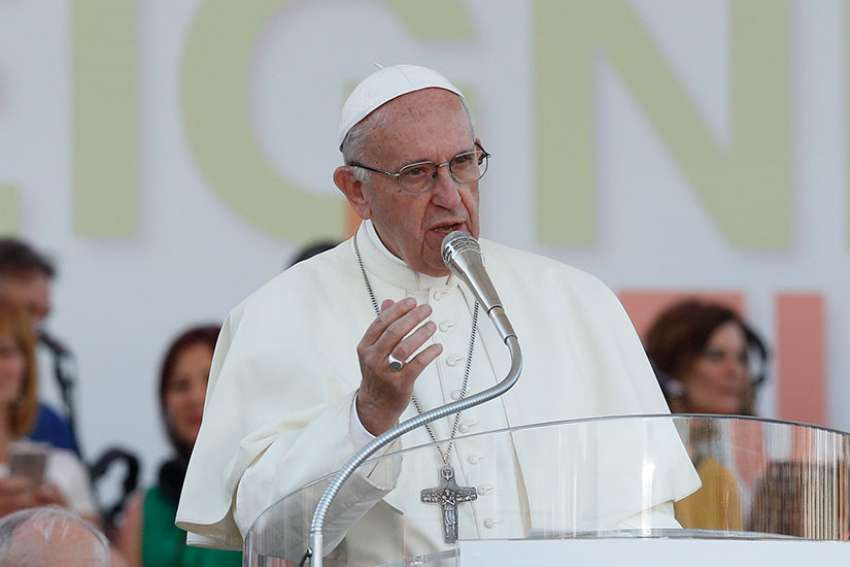"Women are fully entitled to actively take part in all settings, and their rights must be affirmed and protected, including through legal instruments wherever it may prove necessary," he said June 9.
The pope was speaking to members, consulters and guests of the Pontifical Council for Interreligious Dialogue, which was holding its plenary assembly in Rome June 7-9. Participants had discussed the role of women in teaching universal fraternity.
"We cannot truly call on God, the father of all, if we refuse to treat (others) in a brotherly way," Cardinal Jean-Louis Tauran told the pope, quoting from "Nostra Aetate," the Vatican II declaration that addressed the Catholic Church's relations with other religions.
Pope Francis told the assembly that unfortunately the important ability of women to teach these values is "obscured and often unrecognized because of the many evils that afflict this world and that, in particular, damage women's dignity and their role."
Women and children are frequently the victims of "blind violence," he said.
Whenever "hatred and violence have the upper hand, they tear apart families and society, preventing women from easily and effectively carrying out their mission as educators," joining with men to promote common aims and efforts.
More must be done to recognize women's gifts and their ability to find new ways to welcome and respect others in a multicultural, globalized world, he said. It is also important to take advantage of "their conviction that love is the only power that can make the world habitable for everyone."
When women have the opportunity to fully share their gifts with the whole community, the community ends up "transformed" in a positive way, the pope said.
"Therefore, it is a beneficial process -- that of having the growing presence of women in social, economic and political life on the local, national and international levels, as well as in ecclesial life," he said.
He also urged all groups involved in interreligious dialogue to invite women to participate in all aspects of their discussions, not just when a topic or a gathering is about women.
"Many women are well prepared to address very high-level meetings on interreligious dialogue," he said.


